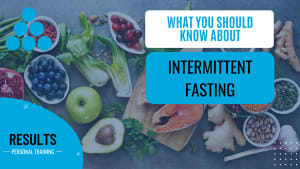
Intermittent fasting is a pattern of eating that involves alternating periods of eating and fasting. There are a number of different approaches to intermittent fasting, including the 16/8 method (fasting for 16 hours and eating during an 8-hour window), the 5:2 diet (eating normally for 5 days and restricting calories to 500-600 for 2 non-consecutive days), and alternate day fasting (eating normally one day and restricting calories to 500-600 the next). There are several potential benefits to intermittent fasting, including: Weight loss: Intermittent fasting may help with weight loss by reducing overall calorie intake and increasing fat oxidation. Improved insulin sensitivity: Intermittent fasting may improve insulin sensitivity and reduce the risk of type 2 diabetes. Increased lifespan: Some studies have suggested that intermittent fasting may increase lifespan by activating cellular repair processes and improving overall health. Improved brain function: Intermittent fasting may improve brain function by increasing the production of brain-derived neurotrophic factor (BDNF), a protein that plays a role in learning and memory. However, there are also potential drawbacks to intermittent fasting, including: Hunger and cravings: Fasting for extended periods of time can lead to hunger and cravings, which can make it difficult to stick to the diet. Nutrient deficiencies: Intermittent fasting may lead to nutrient deficiencies if not carefully planned. For example, if you are eating a very low calorie diet on fasting days, you may not be getting enough nutrients such as protein, fiber, and essential vitamins and minerals. Disruptions to social and work life: Intermittent fasting may be difficult to follow if it disrupts your social or work life. For example, if you are eating during a very limited window, it may be hard to find time to eat with others or attend social events. Increased risk of disordered eating: For some people, intermittent fasting may trigger disordered eating behaviors or unhealthy habits. Decreased athletic performance: Intermittent fasting may impair athletic performance, especially for athletes who need to refuel frequently during intense training sessions. It's important to note that intermittent fasting may not be suitable for everyone, and it's always best to consult with a healthcare professional before starting any new eating pattern. Intermittent fasting may not be appropriate for people with certain medical conditions such as diabetes, or for pregnant or breastfeeding women. To recap, intermittent fasting is a pattern of eating that involves alternating periods of eating and fasting. There are potential benefits to intermittent fasting, including weight loss, improved insulin sensitivity, increased lifespan, and improved brain function. However, there are also potential drawbacks to intermittent fasting, including hunger and cravings, nutrient deficiencies, disruptions to social and work life, increased risk of disordered eating, and decreased athletic performance. It's important to carefully consider the pros and cons of intermittent fasting and consult with a healthcare professional before starting any new eating pattern.
